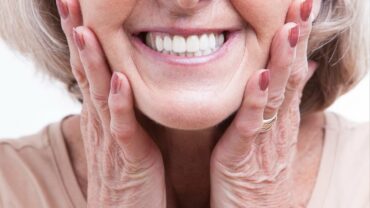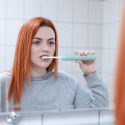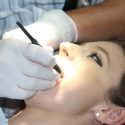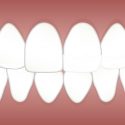10 Important Tips On Dental Health And Hygiene
Taking good care of your gums, teeth and mouth is a worthy achievement in itself. Good dental health and hygiene prevents tooth decay, bad breath and gum disease – and can help you keep your teeth intact as you grow older.
Researchers are also finding new reasons to brush and floss on a regular basis. A healthy mouth will help you ward off unhealthy germs and bacteria. On the other hand, an unhealthy mouth will increase your risk of severe conditions such as diabetes, heart disease, and stroke.
The importance of good oral hygiene can never be underestimated. Below are 10 tips to take care of your teeth, gums, and mouth in overall. So, here we go – 10 important tips on dental health and hygiene:
1. Brush Properly
A quick brush isn’t enough to remove all leftover food particles in your teeth. What you should do instead is use the brushing technique echoed by ADA (American Dental Association). Start by holding your brush at a 45 degree angle to your gums. Use short strokes to clean the sides and tops of your teeth in back and forth strokes. Now, hold the brush at 90 degrees and use several short strokes to clean the back of your teeth where plaque often builds up.
2. Brush Long Enough
Most of us brush regularly, but we don’t brush long enough for our teeth to remain spotless. It is highly recommended that people brush for at least two minutes, twice a day. If you have trouble estimating this duration, you can try listening to a song that lasts about two minutes or set a timer on your phone. This ensures you give yourself enough time to clean your teeth thoroughly.
3. Use The Correct Brush
When buying a brush, always go for one that has bristles that are small enough to reach into the cracks and crevices in your teeth. This is where all food particles hide. According to the ADA, most adults require a small or medium-sized toothbrush that can access all the hard-to-reach areas of their mouth with ease. Try an electric toothbrush for an additional comfort.
4. Floss Properly
Like brushing, flossing must also be done regularly, to remove any germs that are stuck between teeth. Ideally, use a piece of floss that is long enough to allow you use a fresh part of the floss every few teeth without reinserting bacteria back into your teeth. Keep in mind that the floss should rub in between your teeth in a forth and back motion for a thorough floss. You can complement this with an electric water flosser.
5. Buy Toothpaste With The ADA Seal
Not all toothpastes are of high quality. For the best clean, look for one that has the ADA seal of approval. This means it meets stringent manufacturing regulations and has an acceptable dose of fluoride suitable for both teens and adults. It also means that it can promise a clean and healthy mouth. The ADA seal of approval ensures you are using a toothpaste that will do a clean and thorough job every time you brush.
6. Use A Mouthwash
A good quality mouthwash can reach where brushes and floss don’t to get rid of all the germs that irritate the gum leading to problems such as gingivitis. Using a mouthwash ensures you get the most thorough clean, even when you are in a hurry.
7. Clean Your Brush Thoroughly
You don’t need special tools to clean your brush. You don’t need to cover the brush either. In fact, covering your brush can actually lead to growth of new bacteria. Instead, just rinse it thoroughly after every brush and allow it to air dry. You should also never share toothbrushes with others.
8. Change Your Brush Every Few Months
Brushes deteriorate very fast, so if you are still using the same toothbrush you used a few months ago, you may not be cleaning your teeth well. Make a habit of buying a new toothbrush every three months for the best clean.
9. Use A Tongue Scraper
After brushing your teeth, bacteria can stick to your tongue, so be sure to use a tongue scraper to remove the leftover germs and also freshen your mouth. Some toothbrushes come with a tongue scraper at the back of the brush. Next time you go out shopping for a new brush, buy one with a tongue scraper.
10. Avoid Snacking
Brushing properly will clean your teeth and get rid of any bacteria, but if you snack immediately after brushing, you will need to brush again. Snacking allows food particles to get lodged between teeth for long, giving fuel to bacteria that feeds on it thus causing tooth decay.
Takeaway
Make it a point to ensure good oral hygiene every day. You will not only be investing in your overall health for now, but also for the future.




